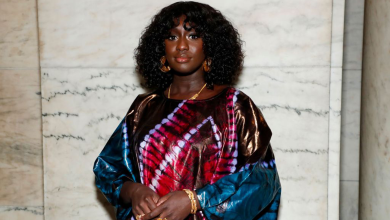Duke University School Of Medicine Abruptly Shutters Graduate Support Program And DEI Office


In August, Duke University abruptly shut down its Biosciences Collaborative for Research Engagement (BioCoRE) program. According to The Duke Chronicle, the program, launched in 2013, supported graduate students in the School of Medicine with career development and guidance through their doctoral studies.
The University also closed its Inclusion, Diversity, Equity, Advancement, and Leadership in the Sciences (IDEALS) office, which funded BioCoRE and similar diversity-focused programs.
Per the student-run media organization, both closures came without warning, leaving students, faculty, and even program staff shocked and scrambling for answers.
“There was very little consultation with anyone within the program or affiliated with the program,” said former BioCoRE Program Director Jennifer Ocasio, per The Chronicle.
“I think the sentiment from everyone involved, from the students to us to the faculty, it’s just disappointment that this decision was made without really diving deep into what the program does.”
Duke Responds To Program Closures
Ocasio learned of the program’s closure in a meeting with her supervisor and Johnna Frierson, former IDEALS director and associate dean for research engagement.
At the time, 87 doctoral students across 15 School of Medicine departments were enrolled in BioCoRE, according to The Chronicle. They weren’t informed until Ocasio and Frierson decided to break the news themselves, having received no guidance from the University.
The School of Medicine has not issued a formal statement acknowledging the closure of the broader IDEALS office or notifying students or faculty about BioCoRE. However, two weeks ago, it shared its first public notice on BioCoRE’s LinkedIn page.
“It is with a heavy heart that we are announcing the closure of the BioCoRE Program in its current form,” the post said.
“This program has been a cornerstone for 12+ years of graduate students and we are so sorry that it has to come to an end. It has been an honor and a privilege to have served over 200 amazing BioCoRE scholars plus countless affiliates over duration of the program. BioCoRE’s community is unparalleled and we wish you all the very best.”
In an email to The Chronicle on Thursday, Sept. 11, 2025, Duke University health officials cited “a significantly reduced financial reality” as the driving force behind the closures and expressed gratitude for the contributions of the BioCoRE and IDEALS teams.
“While we cannot continue all the programming the IDEALS Office previously offered, we remain committed to our students and trainees and are working with other groups to ensure that some key support continues,” they added.
BioCoRE, which has 109 alums, offered a range of support for students, including speaker events, a $1,500 first-year stipend, a $1,500 professional development fund for second years, and a two-week orientation program called Early Start to help new doctoral students adjust to Duke and Durham, NC. While open to all, many perceived the program as advancing diversity, equity, and inclusion (DEI) initiatives.
“The initial intent was really to help individuals who were coming from underserved backgrounds to gain the skill sets they need to be on equal playing ground with everyone else within their PhD program,” Ocasio told The Chronicle.
Gabby Walker, a second-year doctoral student, said losing BioCoRE’s $1,500 professional development stipend will limit her ability to attend conferences — something she called “a bit detrimental” to her growth as an early career scientist.
Duke University health officials told The Chronicle that all existing financial commitments will be honored, but for Walker and many of her peers, BioCoRE was “a big reason” they chose Duke. In a June survey of BioCoRE students, the program and IDEALS office were rated as the most effective resources for supporting graduate progress.
Students say the program’s closure also cuts off a vital source of community and support for scientists from all backgrounds.
“We’re not losing our identity, but we’re losing a space where I feel like we can really express ourselves and grow as individuals and professionals as well,” Walker said, per The Chronicle.
Did Duke Cave To The Federal Crackdown On DEI?
Per The Chronicle, officials did not respond to questions about whether DEI efforts influenced the decision or whether they consulted stakeholders before the closures.
Ocasio said the official reason given for the closure of BioCoRE and the IDEALS office was financial, tied to the University’s broader cost-cutting efforts. The School of Medicine, for example, is planning a $125 million budget cut and has introduced salary reductions for tenured faculty who don’t meet productivity benchmarks, according to The Chronicle.
However, some believe the closures may stem from the federal government’s attacks on DEI initiatives. On Monday, July 28, 2025, the U.S. Department of Education announced an investigation into the School of Medicine and Duke Health for alleged racial discrimination in admissions, scholarships, and hiring.
Since then, the Trump administration has frozen $108 million in National Institutes of Health funding allocated to the university, The Chronicle previously reported.
Around the same time, the federal government warned that institutions could face penalties under the False Claims Act for violating civil rights laws through “divisive DEI policies.”
In the months leading up to the closures, officials also scrubbed mentions of DEI from both the BioCoRE and IDEALS websites, The Chronicle reports.
“The IDEALS office was a really easy target to cut given the current administration and the current environment,” former BioCoRE scholar Kavya Raghunathan, a fifth-year doctoral student, told The Chronicle.




